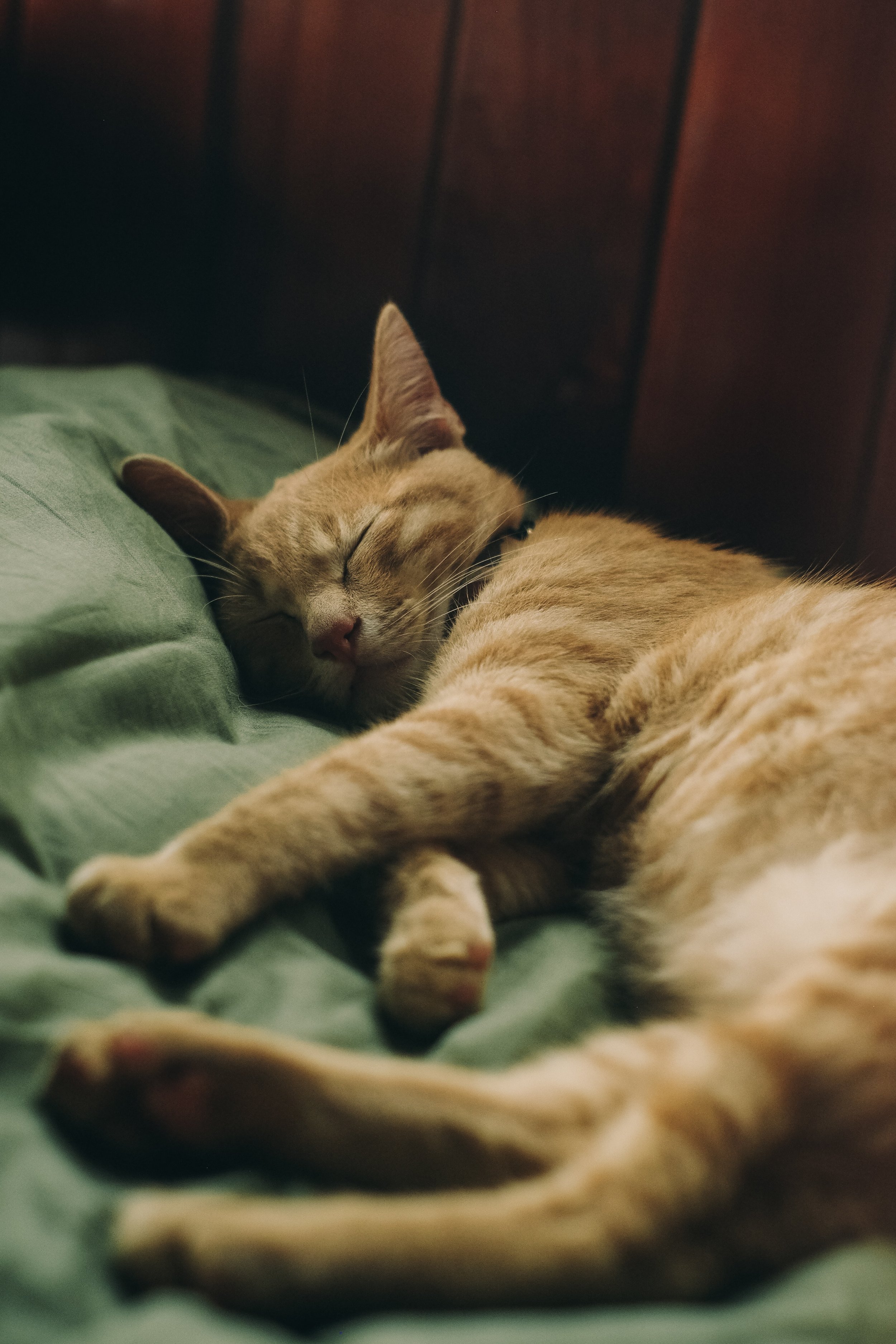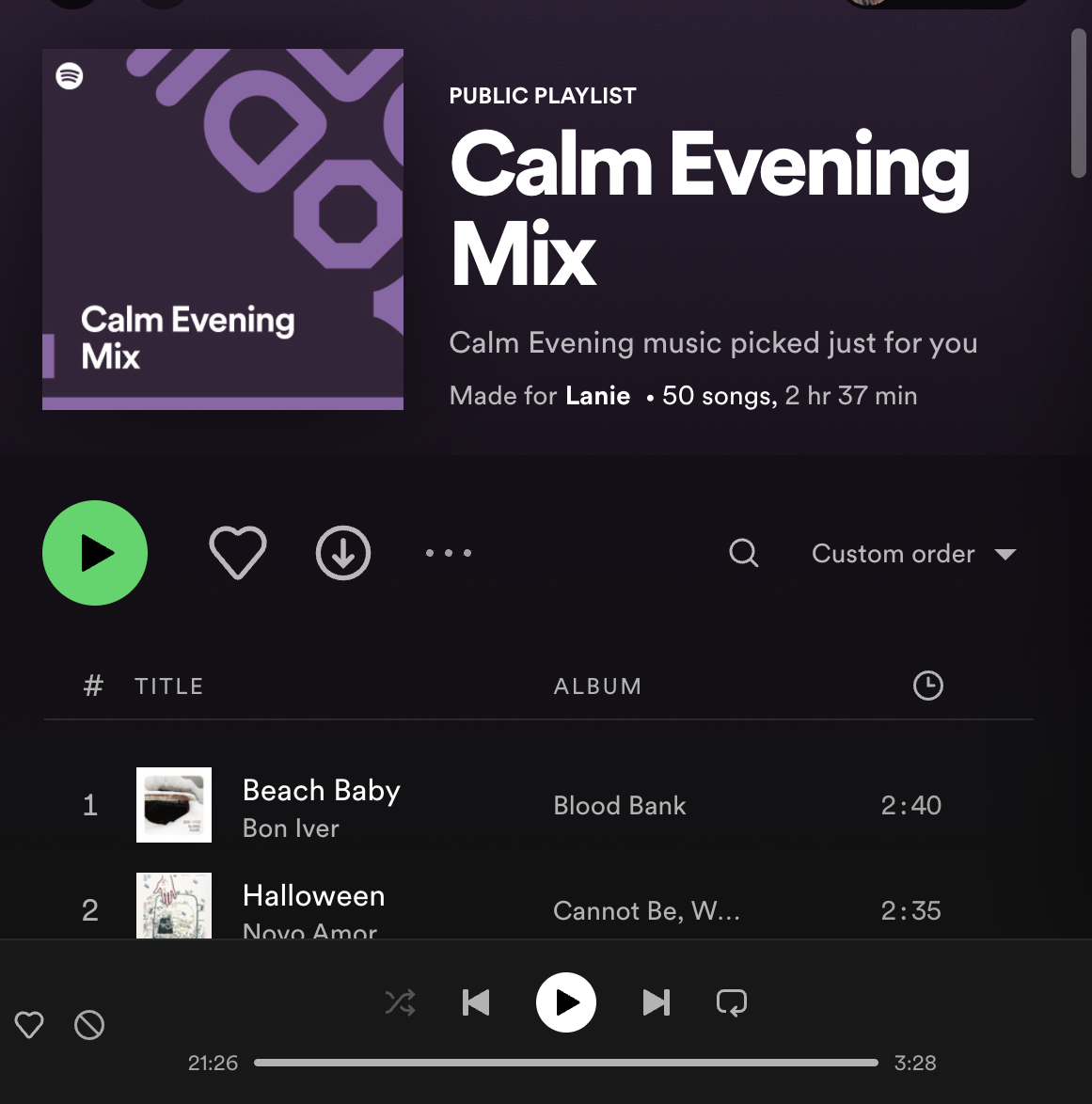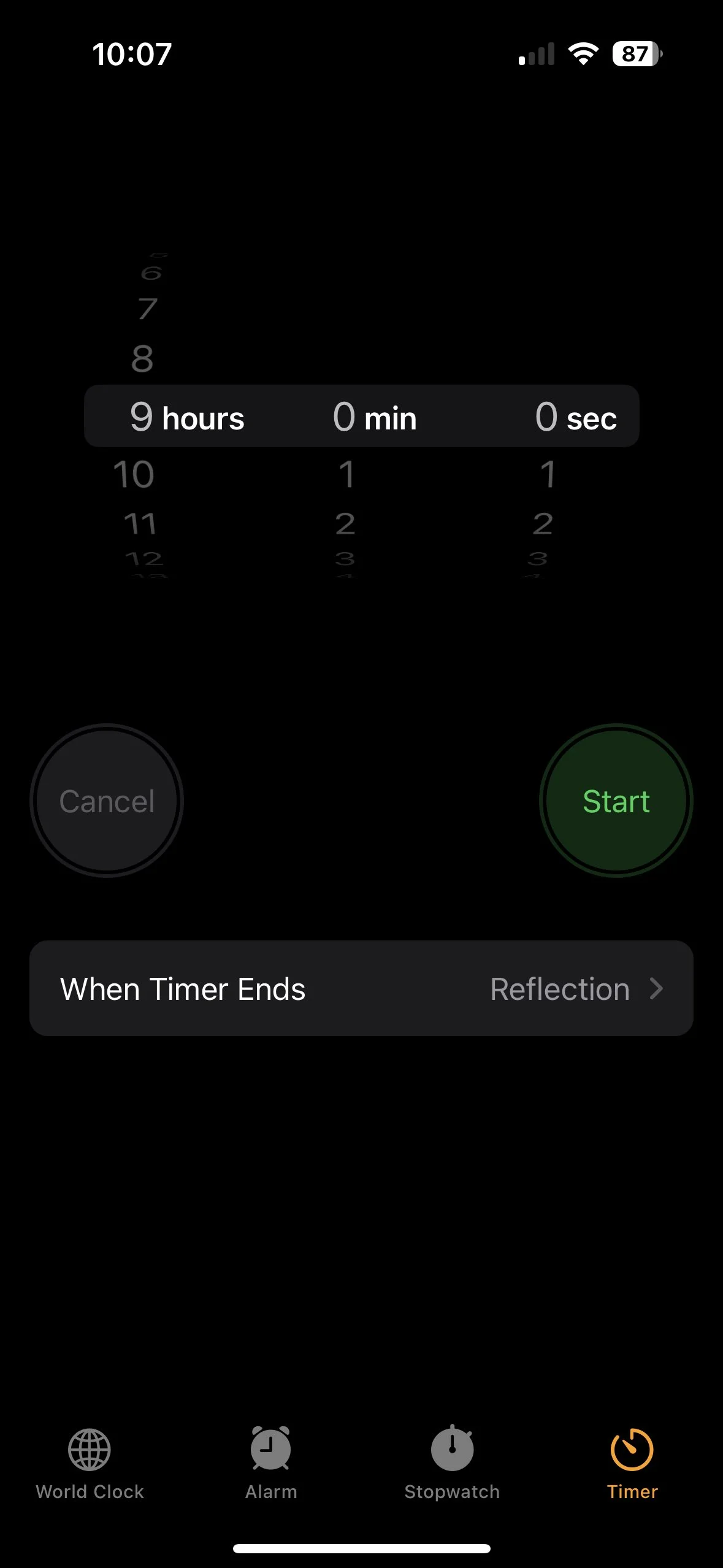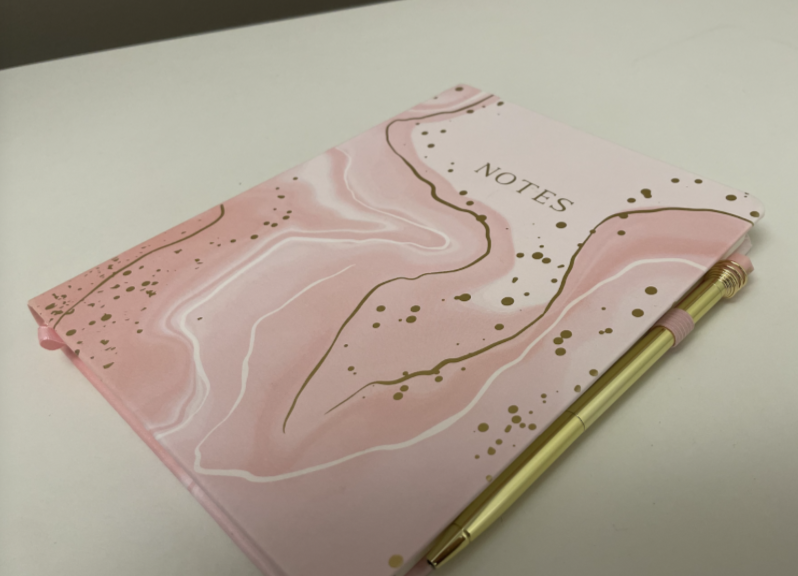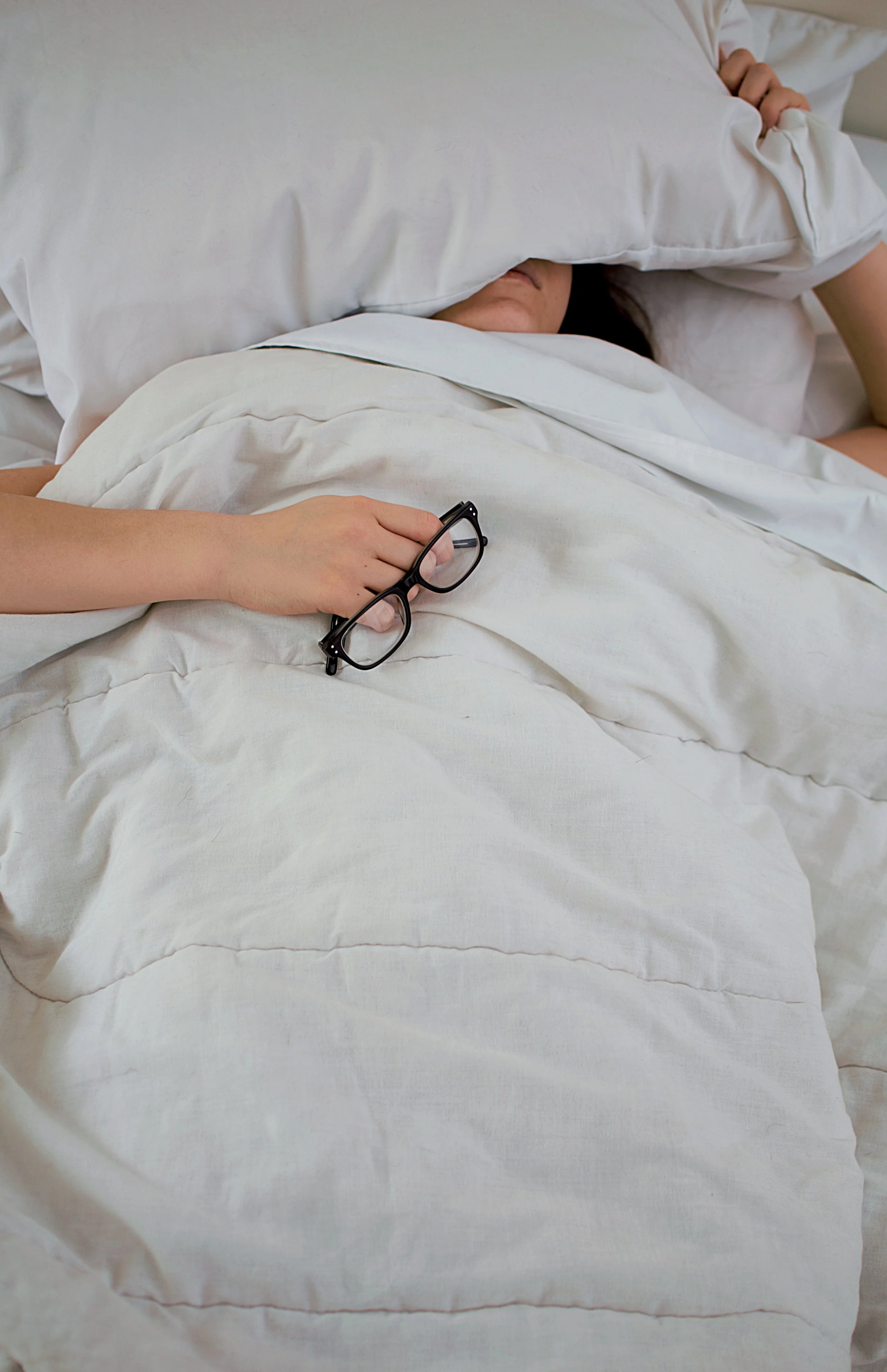Falling Asleep In Class? Here’s How To Fix Your Sleep Routine
photo credit: Dương Nhân
by Sydney Fiorentino ‘24
After a long day of school and homework, it’s time to unwind and go to sleep. You’d think that after a day of looking at our laptops, we’d want to unwind and read a book or journal – but no. In fact, about 90% of 18-29 year olds sleep with their phones near them, while 95% of people use their phone just before going to bed.
I used to be one of those people. Every night, I would lie in bed and watch Netflix or scroll through TikTok until I fell asleep, but then I’d wake up not feeling well rested. I do have insomnia, so getting quality sleep has been very difficult over the years. But when I felt tired throughout the day and started falling asleep in class, I knew something had to change.
Now I have a nighttime routine that works for me and makes me feel awake the next day. Here are some tips that I learned through research and experience.
photo credit: Dmitriy Tyukov
Dim or Turn Off Bright Lights
When I get home and all the lights are on, I feel like the night is still young. Even if I’m tired and all the bright lights are on, I notice that it is harder for me to sleep later on.
A study found that exposure to light before bedtime will suppress your melatonin and will shorten the duration of melatonin release. Melatonin is a hormone that is naturally produced in your brain in response to darkness, which helps you fall asleep. So when excessive light is on, it prohibits melatonin production.
Dimming the lights will help you fall asleep faster because your body will know it's time to wind down as the pineal gland in the brain will initiate the production of melatonin sooner versus if you turn the lights off right when you get into bed.
Listen to Music While Getting Ready for Bed
I’m a huge fan of listening to music 24/7. I love to listen to it while showering, brushing my teeth, and doing basically anything else. Music normally is a way for me to express myself and how I feel at the end of the day. I listen to the lyrics, think, and become grateful for the day that just had passed.
Studies have shown that listening to music before going to sleep has increased people’s sleep quality, as well as decreased the amount of time it took them to fall asleep. This happens because as the brain converts these sound waves into electrical signals, the brain triggers a bunch of physical effects in the body that promote sleep, as well as regulates hormone levels, such as cortisol, which is the stress hormone.
I like to pick a calmer, more mellow mix before bed. Anything with slow, chill vibes is what I normally gravitate towards.
Set Your Alarm
Setting an alarm helps me see how many hours of sleep I get. If you are the type of person that sets many alarms that’s great. However, I know myself well enough to know that I am going to mute all those alarms and eventually sleep later than I am supposed to! A lot of trial and error helped me realize that it’s better for me to only set one alarm in my clock app under the timer section instead of just selecting a set time from the alarms section. That way, I can see how many hours of sleep I am getting and I know I only set one alarm – so I must get up at that time. Setting my alarm is also the last time I look at my phone before I go to bed.
Take Time Away From Electronics
The National Sleep Foundation recommends you stop using your electronic device at least 30 minutes before bedtime. This is because blue light harms your eyes, which then restricts the production of melatonin. In addition, your screen will increase your alertness and will keep your mind awake and engaged as you scroll through the contents of your phone. This, in turn, will affect how well you sleep and your alertness the next day.
I know, it’s easier said than done, but doing something for yourself before bed that doesn’t involve electronics really can help. For me, this can involve different things.
Sometimes I journal if I have a lot in my head. It helps me to just write it out and put ideas on paper, and the practice lets me unwind at night. Another thing I do at night for myself is put on a facemask and write a to-do list, or a goal list, for the next day. Writing down things I want to accomplish makes me feel motivated, and I get excited for the upcoming day.
Having a journal in general has helped me get through a lot and has made me become at peace because I get to reflect about my inner thoughts and who I am as a person.
photo credit: Isabella Fischer
Meditate
Once I let all my thoughts out after journaling or writing stuff down, I try to meditate. Meditation helps quiet your mind and body, while also enhancing your peace. It has been found that meditation before sleep can help reduce insomnia and sleep troubles. I usually try to calm my mind for about 5-10 minutes from all the thoughts and clear everything from my brain in order to sleep.
If you are still having trouble sleeping, you can try melatonin if needed. Other methods include regulating your room temperature, sticking to a routine sleep schedule, limiting naps, lighting a lavender candle, and paying attention to what you eat and drink. USC Student Health also has a free workshop about sleep hygiene that could help you figure out your own habits.
Sleep is very important, but sometimes we don’t realize how our usual sleep routine is affecting our waking hours. It may not seem like such small things could help, but I do see a significant increase in my attention span and alertness during the day now that I’ve fixed my sleep routine. If you’re on your own sleep journey, keep trying new things! There are many resources available online for you and a class at USC called Sleep for Peak Performance that you can take if you are struggling to get your sleep schedule back on track.
Want more from Trojans 360?
Visit Trojans 360 on Facebook & Twitter to stay up to date with more student content! You can also Ask A Trojan an anonymous question, and we’ll try to answer it in a future post. And don’t forget to follow us on Instagram!
Trojans 360 is USC’s official student-run blog. Content created by students, for students.

